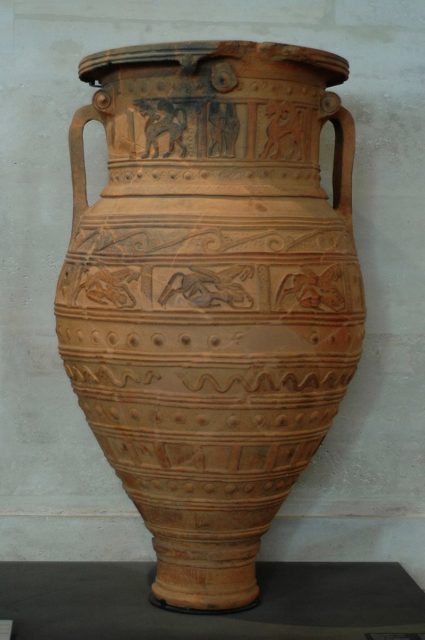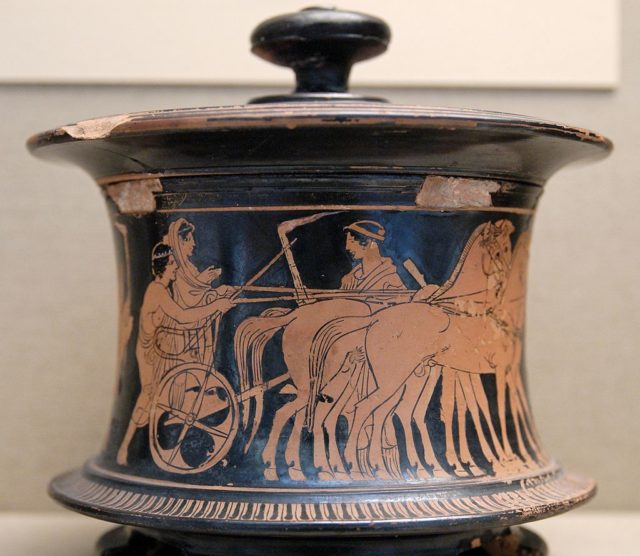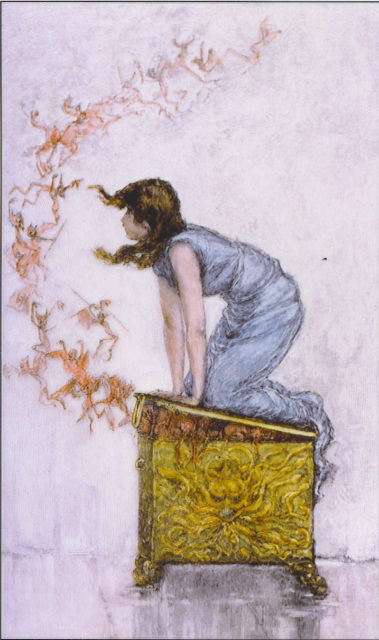“Opening Pandora’s box” is a common metaphor in modern speech, it means to perform an action that may seem innocent, but that turns out to have severely negative consequences. However, the phrase is used so commonly that many people don’t know the exact story behind this iconic Greek myth. In classical Greek Mythology, Pandora was the first woman on earth and the “box” was, in fact, a large jar that contained all the evils of the world.

The myth from which the box/jar comes from is that of Pandora’s creation, found in Hesiod’s Works and Days.
Zeus ordered Hephestus to create Pandora, so he did, using water and earth. Pandora became the first woman on the planet. The gods gave her many gifts: Aphrodite gave her beauty, Apollo gave her a talent for music, Hermes gave her speech, and Athena gave her clothes.

When Prometheus stole fire from heaven, Zeus took vengeance by presenting Pandora to Prometheus’ brother Epimetheus, and in turn gave a large jar to pandora. The jar contained all of the evils of the world, but the unwitting, curious Pandora opening it, releasing its contents. She hastened to close the container, but the evils had already escaped. Only one thing remained in the jar- Elpis (commonly translated hope, but it could also mean expectation.
The word used in the mythology to describe the container was “pithos”- meaning a large jar, sometimes at the size of a small person. Pithos were used for storing wine, olive oil, and other provisions, and also ritually as containers for human bodies ready for burying.

When the 16th-century humanist Erasmus of Rotterdam translated Hesoid’s tale of Pandora into Latin, he mistook pythos with the other Greek word pyxis, meaning box. Hence, it was the story of “Pandora’s Box” that people came to know, instead of “Pandora’s Jar”.
